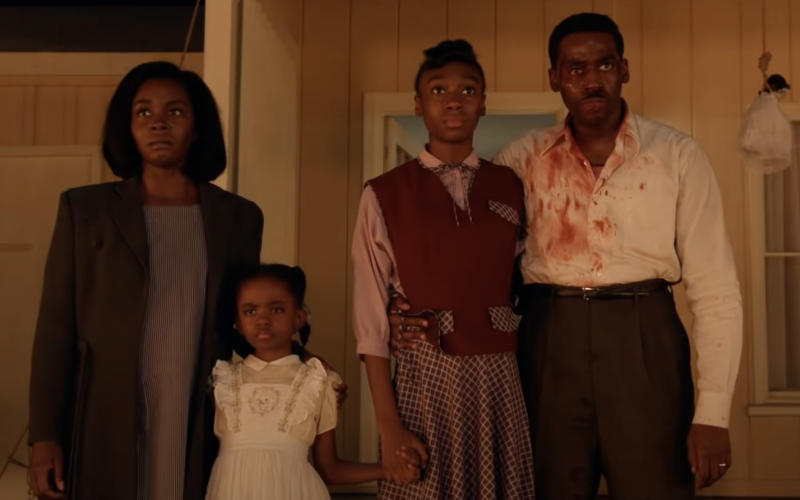Lately, everyone’s talking about trauma. Trauma in news form, trauma in essay form, trauma in Twitter thread form. In pop culture, creators are mining the depths of trauma both personal and historical in a variety of ways—documenting the testimonials of real-life victims in shocking detail; weaving harrowing experiences into fictional characters’ narratives. In those fictional characterizations sometimes, the trauma is merely a plot point; at other times, it is the point, or rather, the wrestling with and processing of it is.
The new Amazon series Them, created by Little Marvin (Lena Waithe is one of the executive producers), has been billed as an anthology that “explores terror in America.” Terror, trauma … is there much difference between the two? Certainly not in this case, as the first season centers the Emorys, a Black family moving from rural North Carolina to the suburbs of East Compton, Calif., in 1953, back when East Compton was virtually all white.
Even if you hadn’t already seen the much-discussed trailer, it would be easy enough to guess what said terror might entail based on that short description alone: Good ol’, mid-20th century American racism. (With a brief detour to the 19th century in a later episode.)
More specifically, the terror/trauma depicted in Them includes, but is not limited to: White characters spewing the N-word at Black people; white characters graphically assaulting, torturing, and (occasionally) murdering Black people; a creepy minstrel character rendered in blackface; filicide.
Of course, the Emorys’ new neighbors in this cookie-cutter Pleasantville are the opposite of welcoming. Betty (Alison Pill)—a dissatisfied housewife who absolutely would have been front and center of the angry white mob that harassed the Little Rock Nine outside Central High School in Arkansas—leads the charge, rounding up the rest of the community to coordinate targeted attacks on the new family. Adding to these immediate threats is the fact that the Emorys—Lucky (Deborah Ayorinde), Henry (Ashley Thomas) and their daughters Ruby Lee (Shahadi Wright Joseph) and Gracie Jean (Melody Hurd)—are already entering into this new environment carrying their own set of deeply unsettling emotional baggage. Because of course; they are Black in America.

9(MDAxOTAwOTE4MDEyMTkxMDAzNjczZDljZA004))

